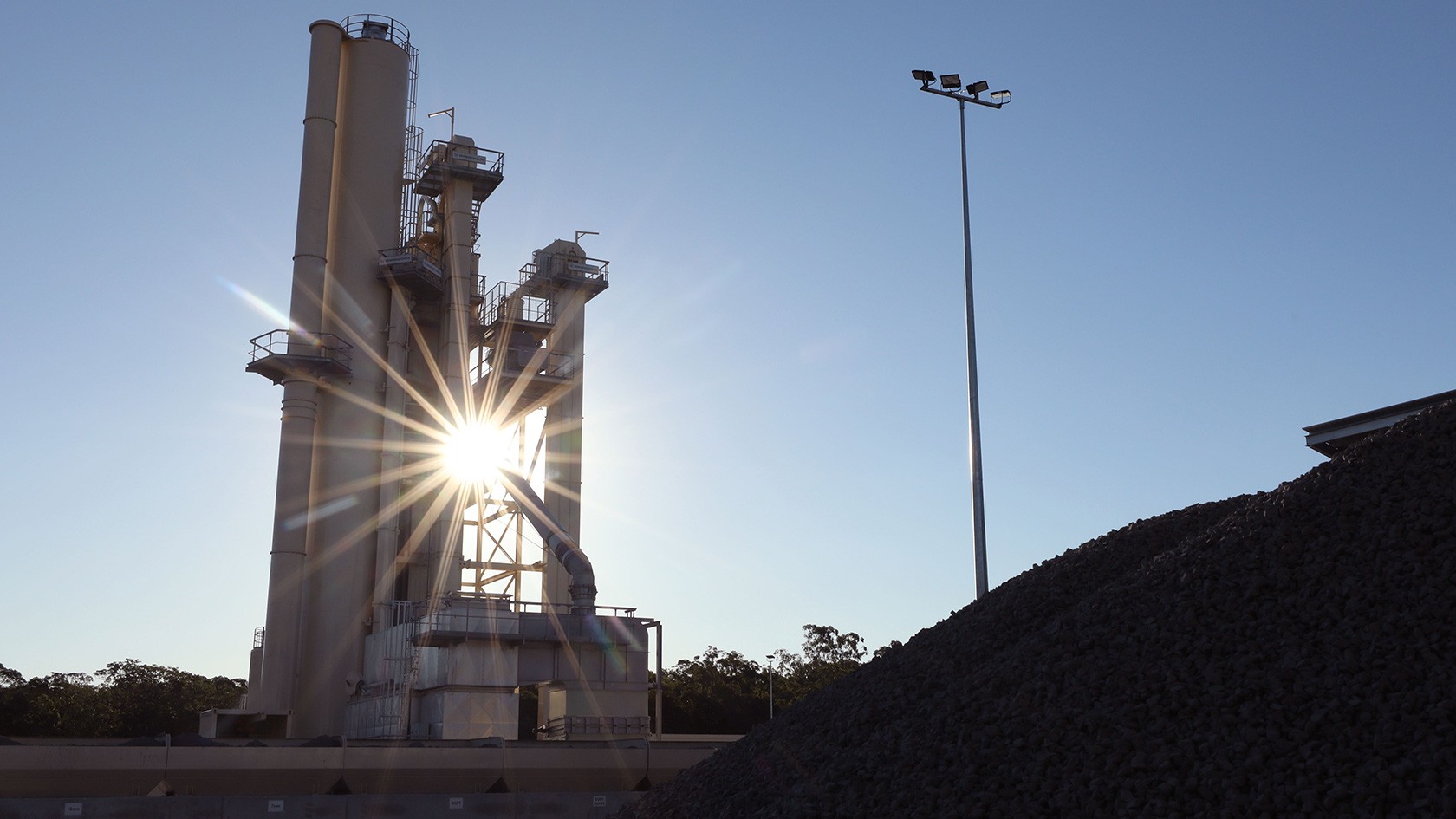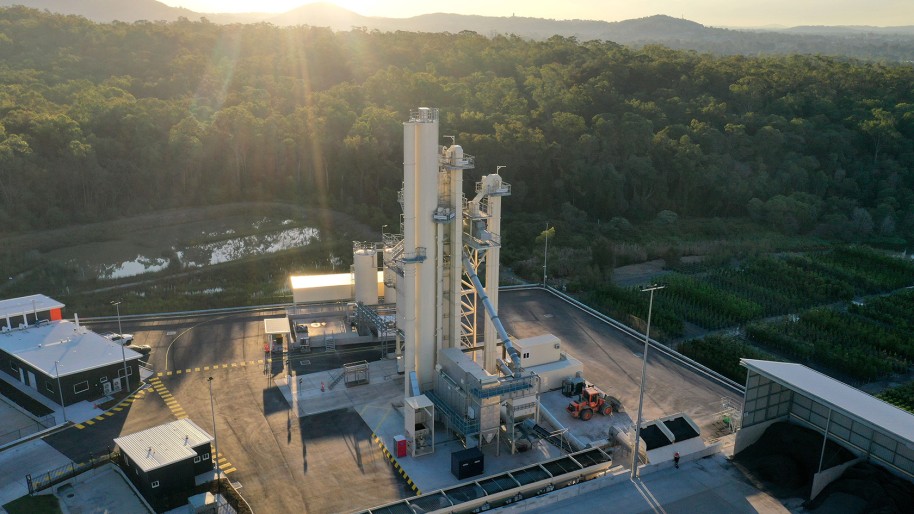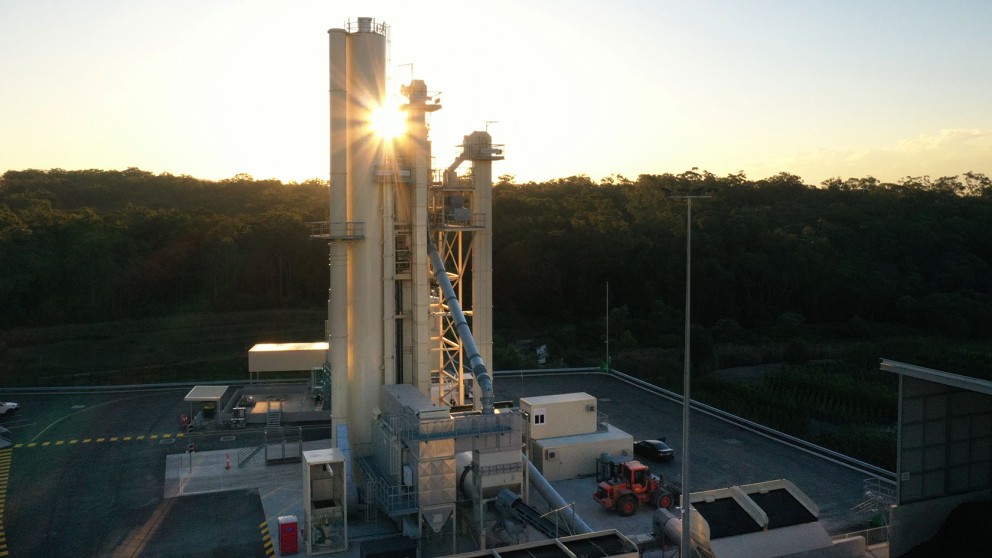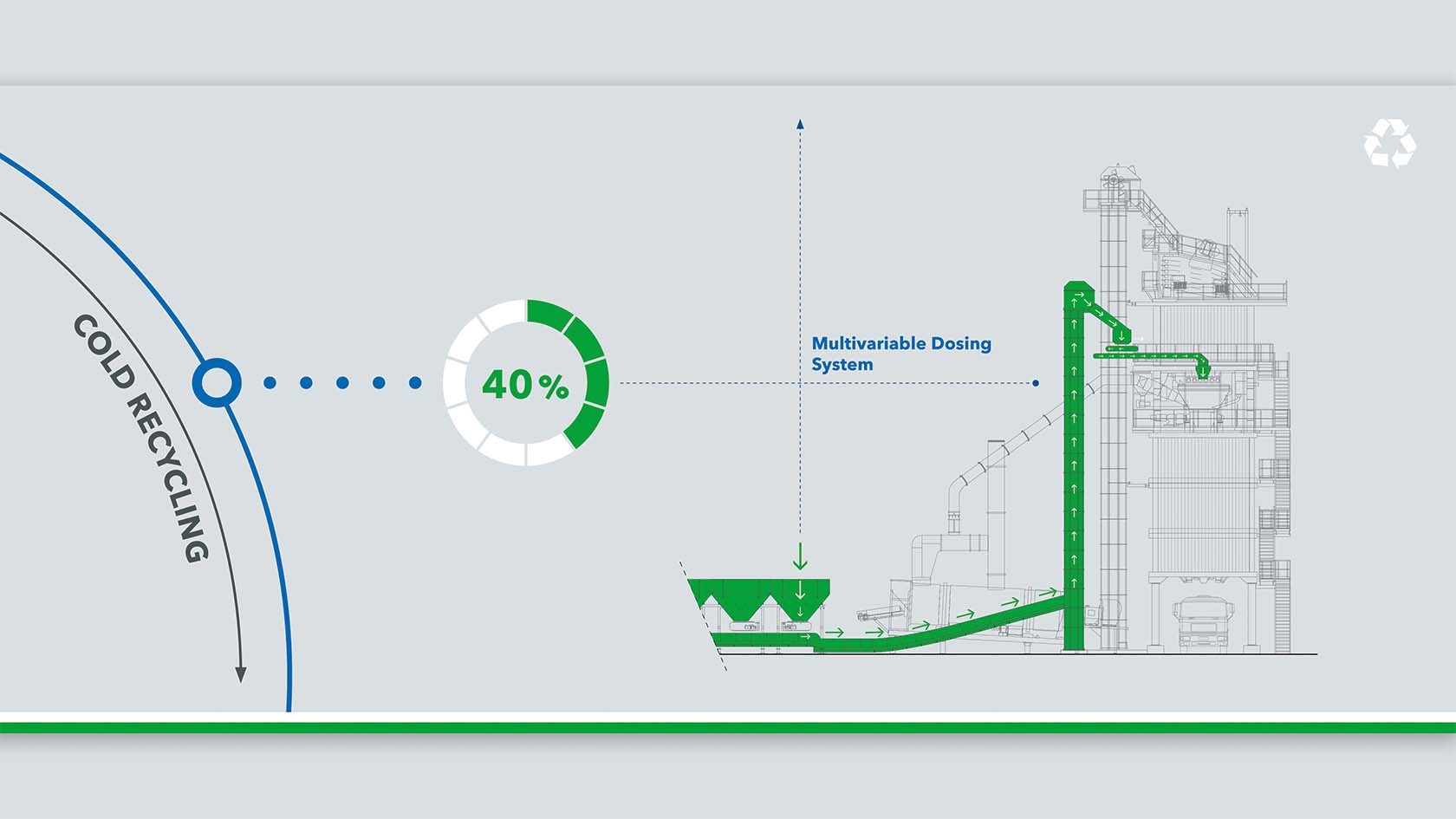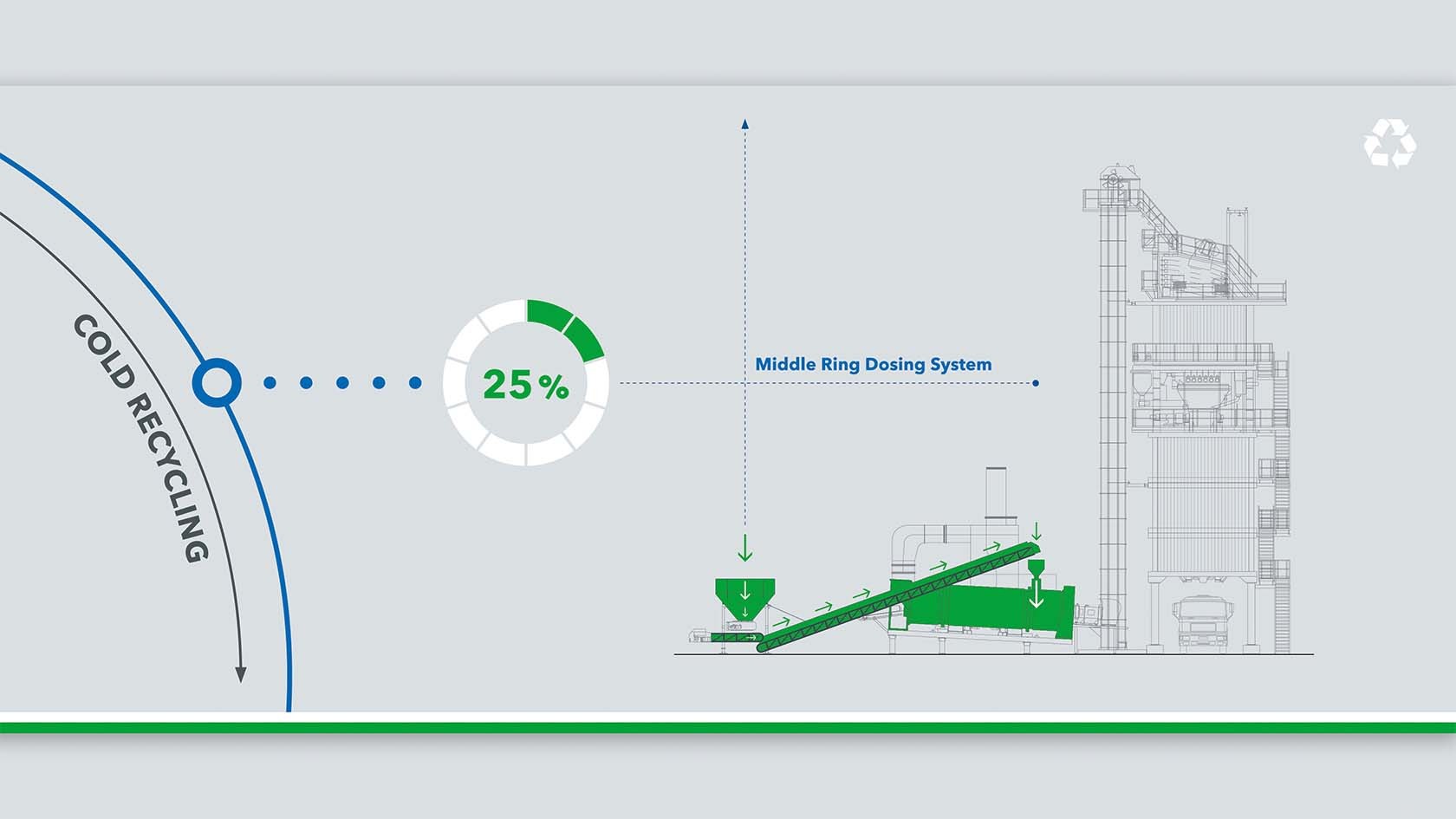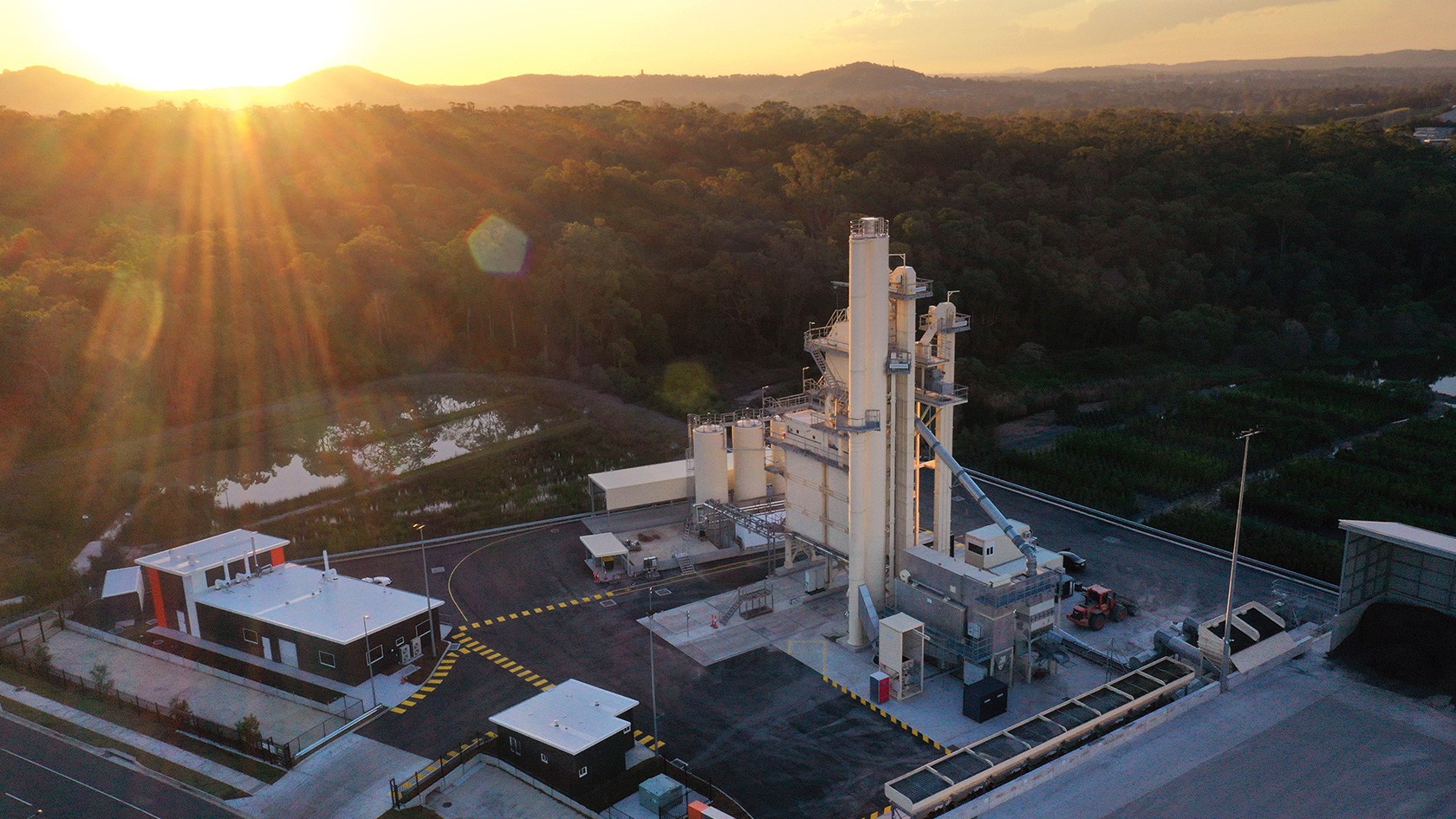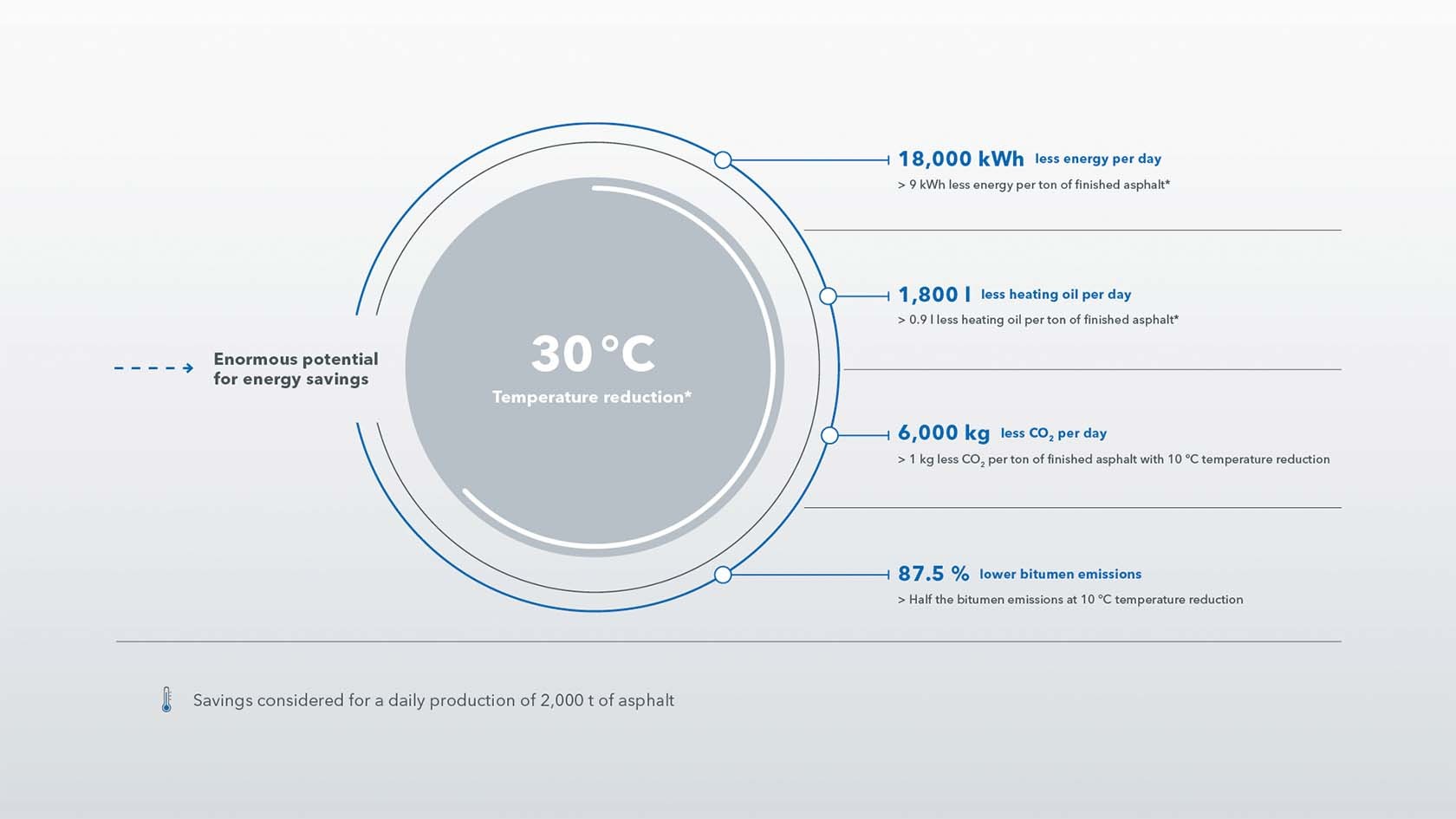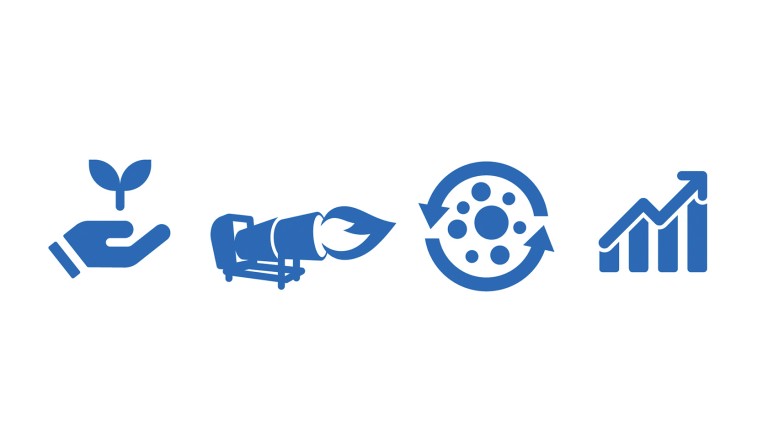10 feed units and four bitumen tanks for a variety of recipes
COLAS placed a special focus on a large range of possible asphalt recipes. “Our customers have high requirements for the asphaltic mixtures. Depending on the intended use of the asphalt, different quantities of recycling material can be added. Depending on the recipe, different bitumen types can also be required,” says Cameron Nisbett, Managing Director of COLAS Queensland. The TBA 4000 at COLAS in Yatala offers several plant options to meet these requirements. The plant has eight feed units for virgin mineral in different grain sizes. The recycling material is also available in two different grain sizes in two additional feed units. And for the bitumen, COLAS can access four different types for producing speciality recipes. The bitumen tanks required for this have a high energy efficiency, which Benninghoven achieves with electric heating in combination with a 300 mm thick insulation.
“With this equipment in conjunction with the recipe generator, we can meet any requests from our customers,” explains Thierry Dulac, Plant and Fleet Manager at the COLAS Australia Group. The recipe generator is one of many highlights of the user-friendly BLS 3000 control system from Benninghoven. The mixing foreman can choose from previously stored recipes and the entire plant then automatically configures all parameters for the required asphaltic mixture.
The Benninghoven recipe generator is a great supporting tool for adding recycling material. This software option of the Benninghoven BLS 3000 control system allows dynamic changes to be made to the recycling content. This means that the mixing foreman can use a slider to add reclaimed asphalt to, for example, a job that was started with 100 % virgin mineral, at any time. The virgin mineral content and all other ingredients of the respective recipe, i.e. bitumen, filler, etc., are automatically adapted and the grading curve of the mixture remains identical – without interrupting production, without changing the recipe and with a constant temperature and quality.
Ten feed units (at the bottom of the image) and four bitumen tanks in total: The TBA 4000 at COLAS supports a large range of asphalt recipes.
